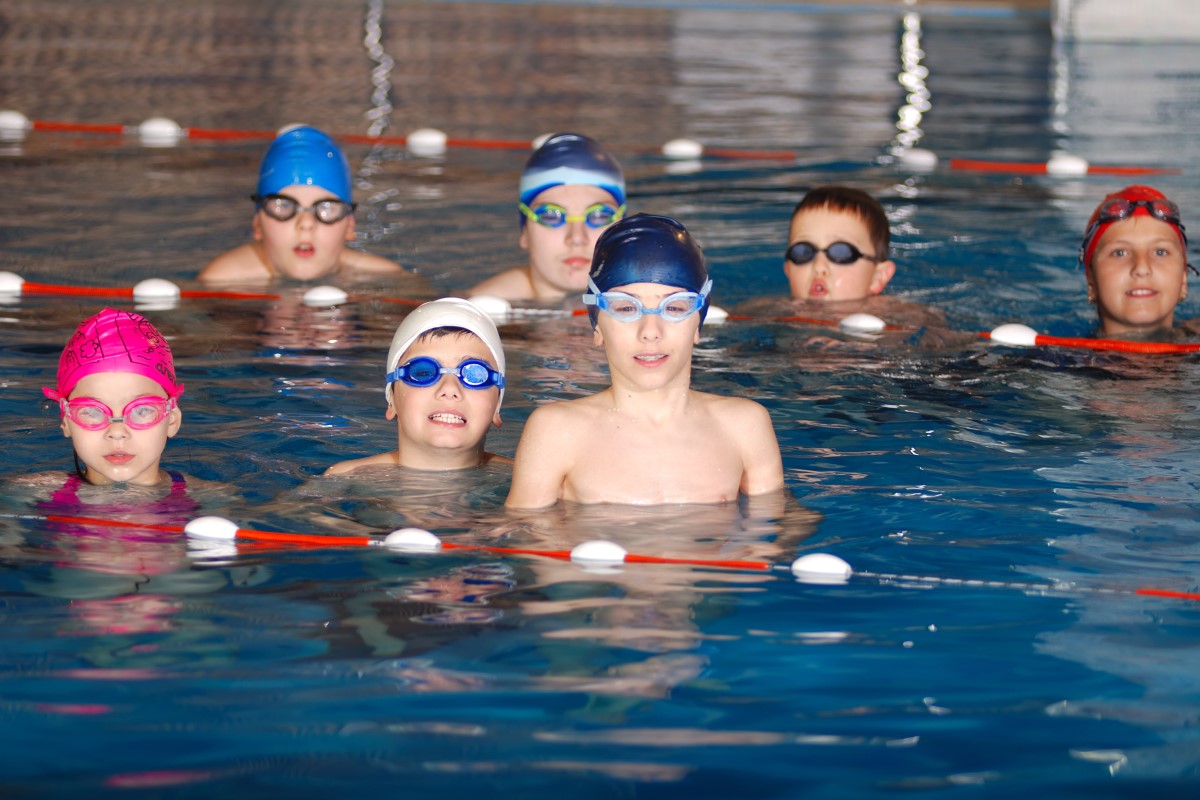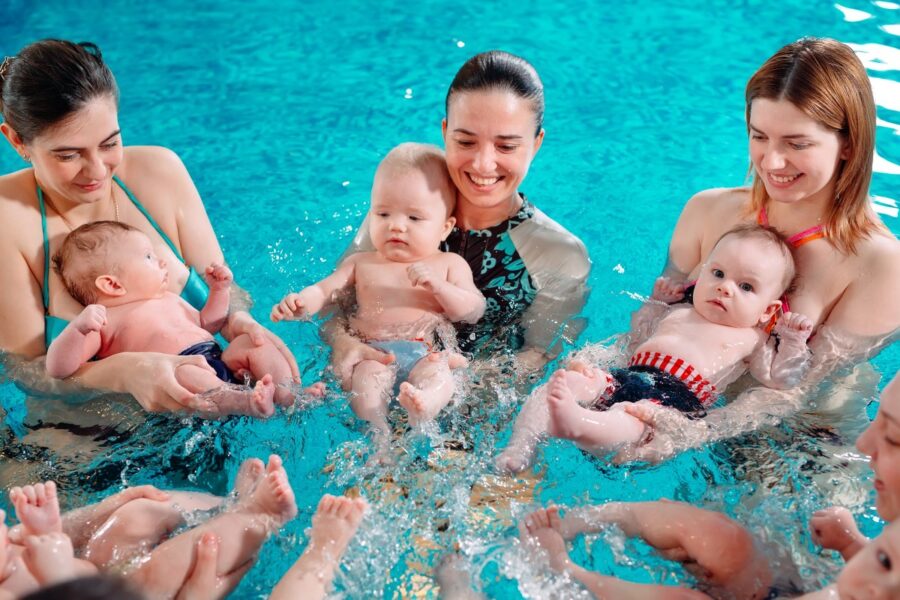
What is the Best Age to Teach a Child to Swim?
The question people ask after “When is the earliest my can take swimming lessons?” is usually, “What is the best age to teach a child to swim?”. Exposure to water and building water confidence can start as young as three months old. If you want to mitigate the fear of water, a swimming lesson can help. The best age for learning is between four and seven years old. Children at this age begin to learn and retain information.
The ideal time to start your child in a swimming program depends partially on the parent and the child’s interests. If you live somewhere with easy access to a pool or bodies of water, ensure your child is water ready. The teaching style should be encouraging and lessons should include safety skills such as floating on one’s back and controlled breathing.
“Kids won’t really become competent swimmers until age six or seven,” says Terri Lees — a Red Cross instructor and trainer who’s part of the organization’s Scientific Advisory Council. But it’s a slow progression, she says. Just like a child slowly progresses from immobile to walking over months. So starting at four or five can be helpful,” she says.
Will starting swim lessons early help your child learn to swim faster? Probably not.
Here’s an older study about children’s readiness for learning the front crawl swim stroke. The research suggests whether kids start lessons at two, three or four years of age, they learn to swim well at the same average age of five and half years old. However, it’s up to you to gauge when your child should learn to swim. After all, you know your child best. Stay informed so you can make the best decision for your child.
Reduce the Risk of Drowning
A 2009 U.S. study found an 88% reduction in drowning risk in kids ages one to four who had taken swimming lessons. Researchers identified 61 drownings and compared victims to children in the same communities who were similar in age and gender.
“The sample was indeed small,” says study author Ruth Brenner, an investigator at the National Institute of Child Health and Human Development. “While its size limits wider extrapolations, the study did show swimming instruction reduced rather than increased risk,” she says. A similar study conducted in China found swimming lessons reduced drowning risk by 40%.
The National Drowning Prevention Alliance suggests choosing swim lessons that include water safety programs. It keeps your child safer in the pool and anywhere they go swimming. Children should develop skills over time and understand the importance of staying safe and having fun in the water.
“Adults should never consider their child drown-proof,” the group says.
Parents play a role in their child’s water safety. Accidents can happen. That’s why you child-proof your pool when it’s not in use.
Speak to your Pediatrician
“Don’t force the issue,” says the American Academy of Pediatrics (AAP).
Swim instructor isn’t a must for babies or young toddlers — it isn’t for every tot either. The group supports swimming lessons for children ages one and older. That’s only if the children show signs of water readiness and are exposed to water frequently.
If your child seems ready for splashing in something bigger than the bath, discuss the topic of swim lessons with the pediatrician. They can give you a better idea of where your child is developmentally, emotionally and physically. Based on this assessment, your pediatrician can recommend a suitable program in your area.
“When young or unskilled swimmer is in the water, a water watcher o parent should be within arm’s length. Even when a child has learned to swim, you should keep them in your view constantly while swimming,” says Dr. Denny says.
Toddler aquatic programs are popular among parents and kids. These programs are a great way to teach your kids to enjoy and be safe around the water. However, these programs may not decrease your child’s risk of drowning. They are not a substitute for adult supervision and safety in the water. However, some drowning prevention skills are teachable to younger children.
When Should my Child Start Swimming Lessons?
When to start swim lessons partially depends on your child and your family. Is your child emotionally and physically ready for swim lessons? Does your family spend lots of time near water or on a boat? Is there a pond on your property? Age isn’t the only predictor of when your child might be ready to swim; each child will be ready on their own timeline.
According to the University of New South Wales, you can start teaching children to swim between the ages of one and four. However, they likely won’t remember and retain skills until they are around five and a half years old.
When children are young, seek parent-child aquatics programs or one-on-one lessons. Look for instructors trained and certified in CPR. AquaMobile provides at-home private swimming lessons. AquaMobile’s certified private swim instructors will travel to your home or condo pool to teach one-on-one private swim lessons in the comfort of your own pool.
Consider classes that run up to 30 or 60 minutes over an eight to ten-week period for swimmers age five and up. Lessons will build on foundational skills and move on to coordinating the movement of the arms and legs.
Pool safety
Keep safety in mind at all times. Swim lessons do not drown-proof younger kids. An adult should always supervise them, whether or not they know how to swim. Even with floaties or a life vest, you should learn to practice “touch supervision.” The APP describes this as a caregiver being within an arm’s reach or able to touch the swimmer at all times.
Consider taking other precautions like instructing babysitters on pool hazards and showing them how to use protective devices. When you have a social gathering around the pool, have the adults take turns being the water; this ensures there are eyes on the kids at all times. Whenever a child is suddenly missing, check the pool first. Learn CPR (cardiopulmonary resuscitation) and ensure all family members do too.
Don’t let the pool attract children when it isn’t in use. Remove toys and ensure the gate or pool barrier is never left open.



